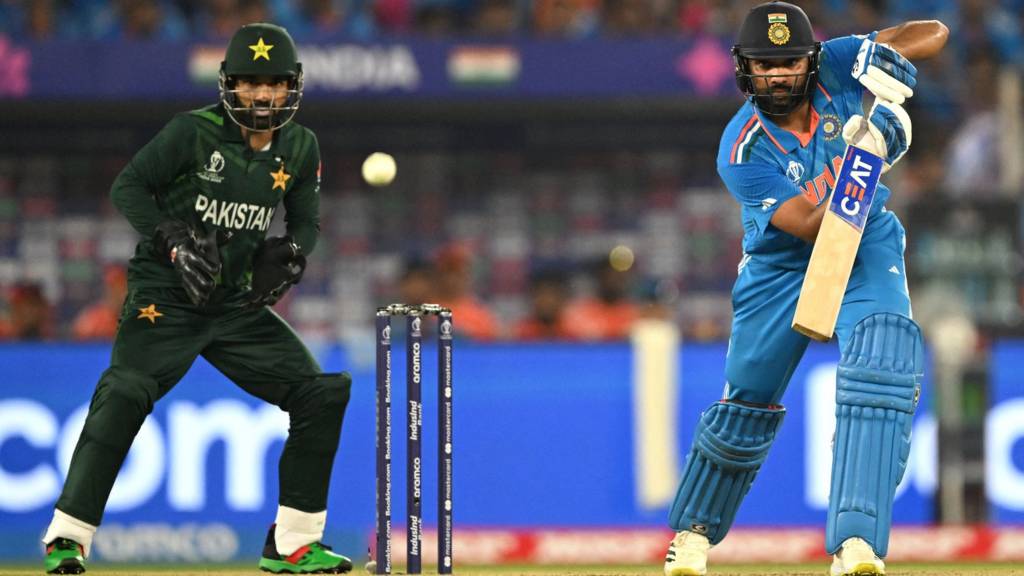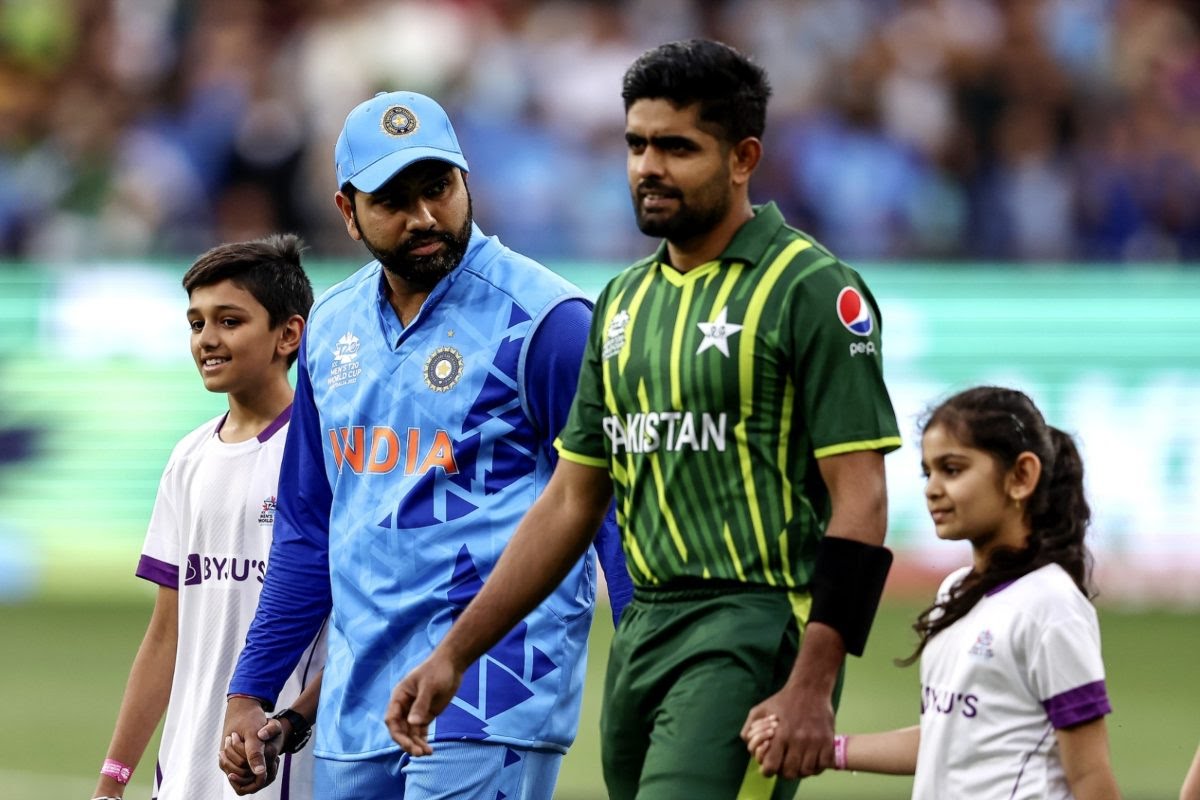ICC Men’s Cricket World Cup, Ahmedabad: INDIA VS PAKISTAN
- Pakistan 191 (42.5 overs): Babar 50, Rizwan 49; Bumrah 2-19
- India 192-3 (30.3 overs): Rohit 86, Shreyas 53*
- Result: India won by seven wickets
In a much-anticipated showdown at Ahmedabad, the marquee clash between India and Pakistan in the ICC Men’s Cricket World Cup unfolded in spectacular fashion, as India showcased a commanding performance that left the cricket world buzzing.
Pakistan, in pursuit of their maiden victory against India in a men’s 50-over World Cup, appeared to be building a competitive platform when they reached 155-2. The stage was set for a tantalizing encounter in the colossal confines of the world’s largest cricket stadium.
However, what transpired was an unexpected and dramatic turn of events. Pakistan’s innings suffered a startling collapse, with the loss of eight wickets for a mere 36 runs, resulting in a total of 191 all out. The formidable India bowlers, led by Mohammed Siraj, collectively wreaked havoc on the Pakistani batting lineup, with Siraj himself contributing two crucial wickets to the cause.
The target posed by Pakistan seemed feeble against India’s batting might. Despite early dismissals, courtesy of Shubman Gill and Virat Kohli, home captain Rohit Sharma played a masterful innings, contributing 86 runs that solidified India’s grip on the match. Rohit collaborated with Shreyas Iyer, who remained unbeaten at 53, as India cruised to victory with nearly 20 overs to spare.
This win marked India’s eighth successive triumph over Pakistan in World Cup matches, dating back to 1992. In the current World Cup, India has maintained an unblemished record, securing three wins in as many games. India now joins New Zealand at the pinnacle of the group table and will square off against Afghanistan in their next match.
While Pakistan tasted their first defeat in this World Cup, it is the context of this humiliating loss against their arch-rivals that will resonate deeply. Pakistan’s upcoming challenges include a match against Australia in Bengaluru, followed by fixtures against South Africa, New Zealand, and England.
On a broader scale, this unbalanced contest highlights a recurring theme in this World Cup, with a dearth of closely fought encounters. The tournament hungers for an element of unpredictability and a more level playing field.
India’s Ominous World Cup Dominance
India’s performance in this World Cup, exemplified by their commanding victory over Pakistan, underscores their status as a tournament favorite. This encounter was not just a cricket match; it was an electrifying spectacle that captured the essence of cricketing rivalry.
The ambiance at the Narendra Modi Stadium was nothing short of electrifying. With a staggering capacity of 132,000, the stadium created one of the most partisan atmospheres in the annals of sport. The noise level, akin to a cacophony, reverberated through the stadium, magnifying the significance of every boundary and wicket, with silence greeting any Pakistani success.
The contest was evenly poised when Babar Azam and Mohammad Rizwan combined to propel Pakistan to 155-2. India and their vociferous supporters were gripped by the spectacle, as the match hung in the balance. However, Mohammed Siraj’s delivery, which nipped low and shattered Babar’s stumps, triggered a calamitous collapse for Pakistan.
What unfolded was a disintegration mainly driven by Pakistan’s own undoing, hinting at a psychological barrier they face when it comes to this 50-over World Cup fixture. Early wickets were crucial to applying pressure on India, but Rohit Sharma’s exquisite strokeplay projected an air of dominance.
India’s victory was sealed with an aura of inevitability. Pakistan’s performance was not only underwhelming; it was humiliating, leaving their World Cup campaign in jeopardy.
In a wider context, this contest mirrors the broader trend of lopsided matches that have characterized this World Cup. Cricket enthusiasts across the globe yearn for nail-biting finishes and closely fought encounters, an element that has been noticeably absent in this tournament.
India’s dominance in this World Cup is palpable, and they appear to be an unstoppable force on their journey towards the semi-finals. Pakistan, on the other hand, faces the daunting task of regrouping for the upcoming clash with Australia, the start of a challenging series of fixtures that includes South Africa, New Zealand, and England.
While it remains uncertain whether Pakistan can rebound from this disheartening defeat, the cricketing world eagerly awaits a more level playing field in the World Cup, with the hope of witnessing closely contested matches that embody the spirit of the sport.





